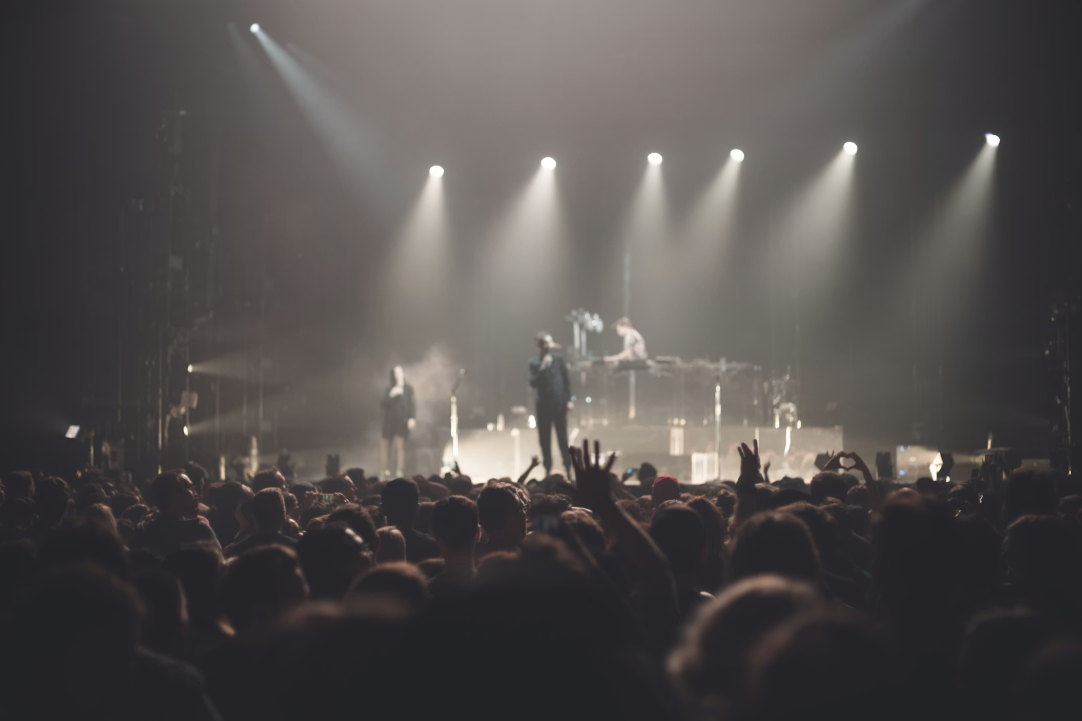Words by: Luisa De la Concha Montes
Last Friday, Kele Okereke played at Clwb Ifor Bach with an acoustic set in an intimate environment, which is quite contrasting to what he is normally associated with, as the front man of Bloc Party. Many fans still remain unaware that for the last eight years, he has been quite invested in developing his solo career.During an interview back in 2010, he explained that the decision to work on his own didn’t come from wanting to take a break from Bloc Party, but it was all about experiencing the gratification that comes from knowing that the only person behind his art was himself.
After releasing two albums that had electronic and house influence, last November he released his third solo album, “Fatherland”, which can initially feel as a disjointed leap from his career so far. The album was described as delicate folk by Wichita Recordings, and in a way, it feels foreign and strange because it portrays a more private and self-aware version of Kele that had remained hidden until now. Yet, this just shows that he was never constrained and entirely defined by the style he developed as the leader of Bloc Party.
His performance at Clwb Ifor Bach clearly reflected the symbolic transition from youth to adulthood that the album inherently represents. Throughout the gig, he kept joking around with the audience, creating an environment that felt intimately honest. It was as if he was playing for a group of friends instead of people that had actually purchased a ticket to be there. At one point of his performance he even stopped playing the Smashing Pumpkins cover of Perfect to acknowledge someone from the audience that had stood up to go to the toilet, and then between laughter, he apologised, saying: “See? This is why I shouldn’t do covers.”
It was a moving performance, not only for the fact that he kept on revisiting the past by performing Bloc Party hits, such as Signs and This Modern Love, in a slower and calmer way; achingly reminding us that ten years have passed since “Silent Alarm” was released. But also, because in an almost anecdotal way, he explained that his guitar playing might be a bit rusty because “he’s been busy changing nappies.”
We can infer from the title of the album that it is, inevitably, about Kele’s journey as a father, and his simultaneous obligation of revisiting ÔÇôfrom a more mature point of view, his own relationship with his father: “I’m fully conscious that this record is probably going to serve as a document for my daughter of the relationship between her fathers and who we were before she came into our lives. It feels important for her to see that we don’t have all the answers but we’re trying.”But the album is also about how, in order to adapt to the new configuration of his life, he unavoidably had to change his musical approach.
Ultimately, the gig felt heavily intimate because we were somewhat invited into his personal process of transformation and growth. A process in which he stepped from the angsty-teen that wrote Helicopter,into the father behind the poetic lyricism of Yemaya. In just an hour, he allowed us to witness that he is genuinely just a man, in front of a crowd, building a personal retrospective of his life, and singing about it with only a guitar as his weapon and shelter.


